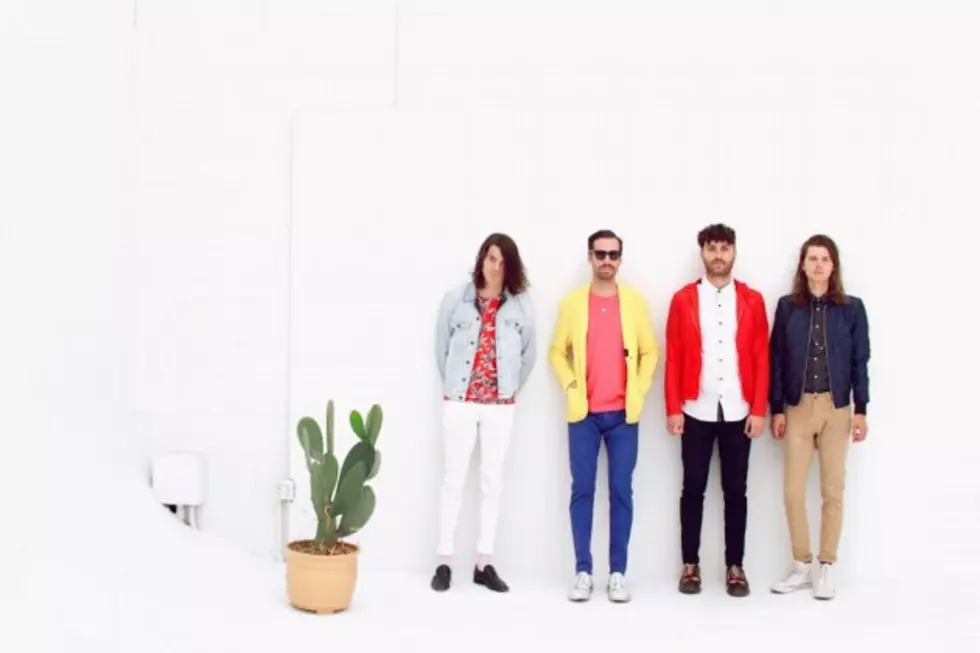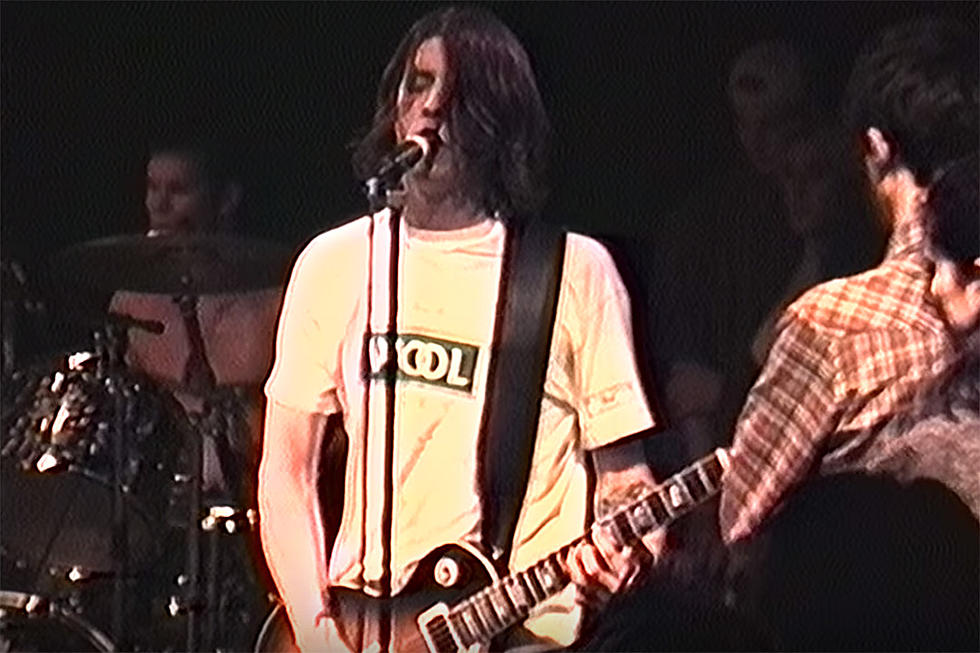
Miami Horror Talk About Influences, New Album Feedback, Staying Power
The only thing more difficult than breaking through with a strong first album is living up to the hype on a sophomore effort, but Australian electronic band Miami Horror have managed to do just that.
Their debut album, 2010's Illumination, might have won Best Dance Release at the 2011 ARIA Music Awards if it wasn't for Cut Copy's Zonoscope. Then, after half a decade of touring and working on a follow-up record, Miami Horror released All Possible Futures, a fantastically danceable amalgamation of influences both vintage and contemporary, on April 21.
The group just started their U.S. tour, and we talked to singer Benjamin Plant about working on the album for an extended period, properly incorporating influences and trying to make timeless music. Check out our exclusive interview below:
You guys have been working on [All Possible Futures] over the past three years in different places between L.A., Paris and Australia. What did you learn from recording it in various places? Did you pick up on local customs or influences that shaped parts of it?
The music kind of got a lot happier as soon as we started writing in L.A., which might be related to our moods because of L.A. There’s definitely a lot of influence from that city. I’ve seen some people say ... [there was] some review that said it had too much influence, but I mean, that’s kind of crazy, just because, you know, how much influence can a city really have? It maybe just brightened the mood a little more, and maybe slowed the tempo down on some songs.
Talking about influences, I’ve read that you guys were influenced by a lot of classic and newer acts, like Talking Heads, Michael Jackson and Tame Impala, so how hard is it for you to toe that line between drawing from your influences and sounding too much like them?
That was on purpose, really. I don’t really think that Tame Impala had a strong influence on the album, but I knew that people would reference that. They’re one of the only bands I really love that are modern, but you know, there’s no attempt at imitating anything they do. We have a lot of referential, classic influences like Michael Jackson and things like that. They’re fairly obvious, but that was a point we wanted to kind of create occasionally: lost versions of our favorite artists, to supply people with that feel they wouldn’t ever get again otherwise, I guess.
You had a lot of time to work on the album: I’m sure you guys were busy touring and stuff, but you’ve been working on this for three years. Having that much time to work on it, is it kind of easy to lose focus, or does having that much time give you the benefit of being able to make sure that everything is polished?
It’s more beneficial than anything. By the end, we were getting a little bit antsy about wanting to finish it and get it out, but we’re really happy with the result, so there was nothing negative about it. We really made sure we explored every sound and avenue that we wanted, just because it is a second album. It’s really hard to make sure it feels complete to you and that you’ve done everything that you can. It is that fine balance between sounding like your first album and what people expect of you, and also creating something new and more mature and evolved. So I felt like the time gave us the chance to really achieve that.
You did have a few songs from the album come out by themselves prior to its release — “Real Slow” came out two years ago. With those songs having already been out there, did you use that as a gauge to sort of see how people would react to certain things you were going for on the record?
Yeah. Yeah, I think that was ... subtly, we were testing what people liked the most, but I don’t know how much influence that really had on changing the album because even by the time “Real Slow” came out, probably 12 of the songs were almost finished, you know? Well, close to finished. But it was interesting to see what people liked more.
I’ve read that you guys were placing a great importance on trying to make an album that has some sort of permanence or staying power, and that’s big in this age where there’s this crazy amount of access to music and there’s so much stuff just coming and going. What elements do you think in the album are going to help give it that power where people will still want to play it five or 10 years down the road?
Firstly, I think diversity in an album helps that because you’re not relying on one sound or one genre and it doesn’t get old super quick. The second thing would be songwriting. Songwriting itself comes in and out of fashion, but a song that does have that classic element to it is kind of a little more timeless.
The third one is not focusing on trends too much, because currently, electronic music is going through a very niche period. I feel like a lot of the stuff that’s coming out that’s really referential to '90s music and also downtempo R&B, it’s really of the moment. It’s something people didn’t like four years ago, five years ago, and it’s something people won’t like in two years. We’re tying to just avoid that whole thing, so when you look back in five years, this is an album that sounds more relevant to the future than everything else going on. That’s the aim, anyway.
How is it self-producing, playing it and then going back after and shaping that sound, knowing exactly what you want, instead of relying on an outside producer to try and capture that?
We just didn’t think it would be possible to get anyone to make it sound how we want it. I think the whole project is really based around a vision, or multiple visions, so it’s really hard to let anybody else come in and think they can do it, I guess. That’s just what we wanted. We tried it a few times with people, but it didn’t really fit for me. The most we could get assistance on is maybe recording and things like that, but production and even mixing is hard to give up.
Complete upcoming dates of Miami Horror's North American tour can be found at their website.
More From Diffuser.fm









